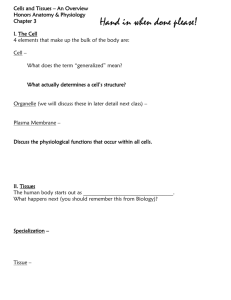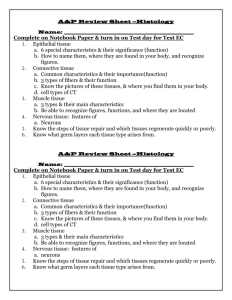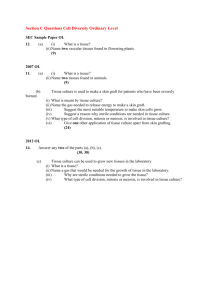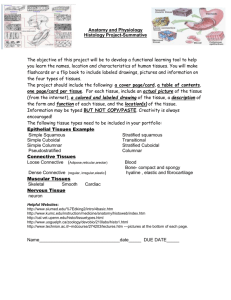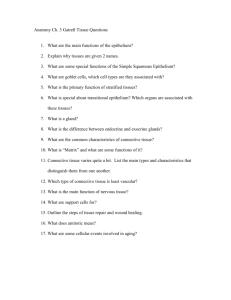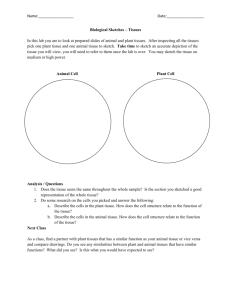Week 1 PPP
advertisement
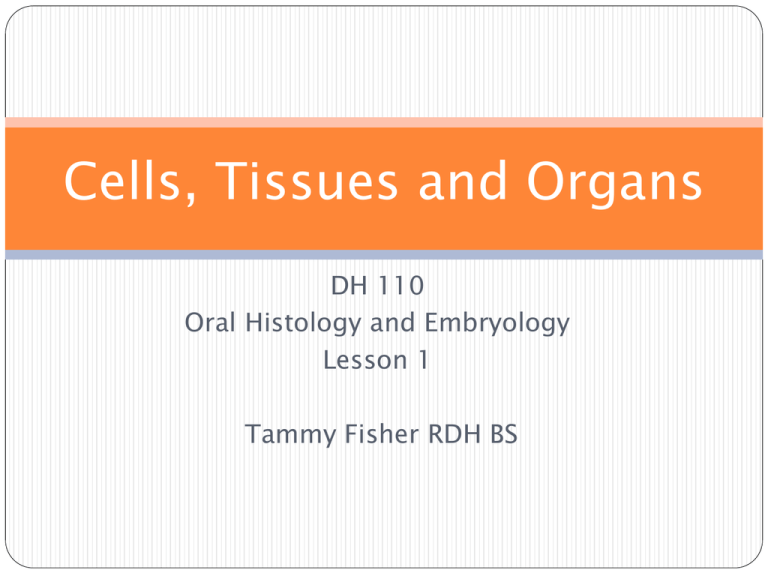
Cells, Tissues and Organs DH 110 Oral Histology and Embryology Lesson 1 Tammy Fisher RDH BS Tammy Fisher RDH 817-233-4898 tammyfish@sbcglobal.net tfisher@concorde.edu Roll Call Where were you born? Where do you live now? Introduction to DH110 Syllabus Calendar Objectives Book TRACI Project Oral Histology The branch of biology that studies the microscopic structure of oral tissues. Embryology The branch of biology that studies the formation and early development of living organisms. The Cell Smallest unit of structure in the human body. Composed of a nucleus and cytoplasm. Cell division is accomplished by mitosis or meiosis. Apoptosis-cell death. Mitosis-The cell cycle of a somatic cell Interphase Prophase Metaphase Anaphase Telophase Meiosis Only in reproductive (germ) cells. Two cell divisions. Results in the formation of a gamete. Origin of Human Tissue •Proliferative stage - rapid growth of the blastocyst which lasts for two weeks. •Embryonic stage – from week 2 to week 8 tissues develop and the organ systems begin to form. •Fetal period – from week 8 to birth tissues enlarge, differentiate and begin to function. Development of Human Tissues 1) 2) 3) 4) Epithelial Tissue Nervous (Neural) Tissues 1) 2) 3) Brain Spinal Cord Cranial Nerves 1) 2) 3) Connective Tissue Proper Blood and Lymphatic Tissues Cartilage and Bone 1) 2) 3) Skeletal Smooth Cardiac Connective Tissue Muscle Organ Systems Integumentary (Skin System) Neural System Skeletal System Digestive System Respiratory System Vascular System Lymphatic System Muscular System Endocrine System Urinary System Reproductive System Next Week Lesson 2 Read chapters 1-4. You may answer the study questions for chapters 1-2 as you read. You may answer the Self- Evaluation questions for chapters 3-4 as you read. No graded homework or quizzes for next week! Don’t forget to “SPRING FORWARD” on Saturday pm!
